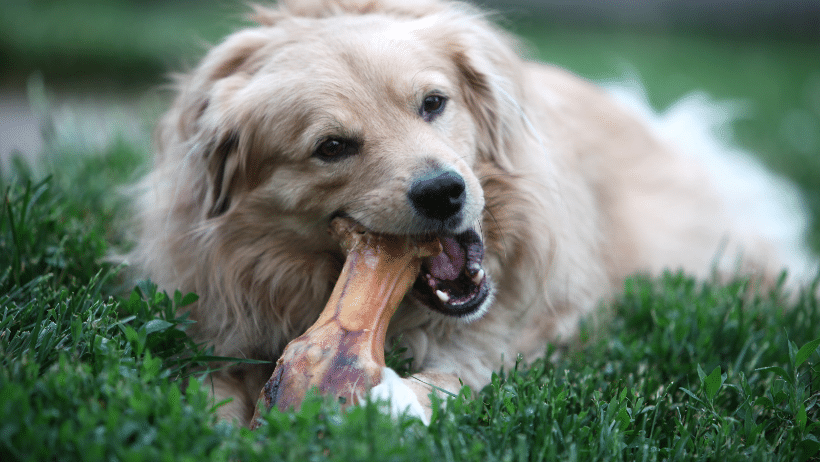
If your dog has a sensitive stomach or allergies, it is important to feed them a diet that is specifically designed for their needs. There are a number of different types of food available for dogs with sensitive stomachs and allergies, so it is important to do your research and find one that is right for your dog.
Some of the things to look for in food for a dog with a sensitive stomach or allergies include:
- A limited-ingredient diet: This type of food contains only a few ingredients, which can help to identify any food allergies or sensitivities that your dog may have.
- A hypoallergenic diet: This type of food is made with ingredients that are less likely to cause allergies in dogs.
- A grain-free diet: Some dogs with allergies are sensitive to grains, so a grain-free diet may be a good option for them.
- A hydrolyzed protein diet: This type of food is made with proteins that have been broken down into smaller molecules, which can make them easier for dogs with allergies to digest.
It is important to talk to your veterinarian before making any changes to your dog’s diet. They can help you to choose a food that is right for your dog’s individual needs and can also help you to make the transition to a new diet smoothly.
What’s the best food to feed a dog with allergies?
The best food to feed a dog with allergies is one that is specifically designed for dogs with allergies. These foods are typically made with limited ingredients and are hypoallergenic, which means that they are less likely to cause an allergic reaction.
Some of the best foods for dogs with allergies include:
- Hill’s Prescription Diet z/d
- Royal Canin Veterinary Diet Hydrolyzed Protein R/D
- Purina Pro Plan Veterinary Diets HA Hydrolyzed Formula
- Eukanuba Veterinary Diets Derm Complete
- Iams Veterinary Diets Sensitive Skin & Stomach
These foods are all available through your veterinarian.
What is the best food for a dog with itchy skin?
Itchy skin in dogs can be caused by a variety of factors, such as allergies, parasites, or skin conditions like dermatitis. If your dog has persistent itchy skin, it’s essential to consult with a veterinarian to determine the root cause and develop an appropriate treatment plan.
That being said, dietary changes can sometimes help manage skin issues in dogs. It’s important to note that what might be the “best” food can depend on the individual dog, its overall health, specific allergies, and the cause of the itchy skin.
Here are some general considerations for choosing dog food for a dog with itchy skin:
-
Omega-3 and Omega-6 Fatty Acids: These essential fatty acids are known to promote skin and coat health. Foods with fish, fish oil, flaxseed, and canola oil are good sources of these.
-
High-quality Proteins: Some dogs might be allergic to certain proteins, often those found in common dog food ingredients like beef, chicken, or wheat. In these cases, a diet that features novel proteins (sources your dog has never eaten before) such as venison, bison, or certain types of fish can help.
-
Grain-Free Foods: Some dogs may have a sensitivity to grains, which can lead to itchy skin. Grain-free diets can help in these cases, but they aren’t necessary for all dogs and should be considered with a vet’s guidance.
-
Limited Ingredient Diet: These diets contain fewer components, which can help if you’re trying to pinpoint a specific food allergy.
-
Probiotics and Fiber: A healthy gut can support overall health, including skin health. Foods with added probiotics or those high in fiber can support gut health.
-
Vitamins and Minerals: Certain vitamins and minerals, like Vitamin E and Zinc, also support skin health.
-
Hypoallergenic dog food: These foods are specifically designed for dogs with food allergies, and they often use hydrolyzed proteins to reduce the chance of an allergic reaction.
Always transition your dog’s food gradually over a week or two to prevent digestive upset. If your dog’s itchy skin persists or worsens, consult your vet. They may recommend allergy testing or other interventions to help alleviate your pet’s discomfort.
Remember to always consult with a veterinarian before making major changes to your dog’s diet.
What is the number 1 food allergy in dogs?
The number 1 food allergy in dogs is beef. Other common food allergies in dogs include chicken, dairy, wheat, and corn. If your dog has a food allergy, it is important to avoid feeding them any foods that contain the allergen.
If you are unsure if your dog has a food allergy, it is important to talk to your veterinarian. They can help you to diagnose your dog’s allergy and recommend a treatment plan.
Here are some additional tips for feeding a dog with a sensitive stomach or allergies:
- Start with a small amount of food and gradually increase the amount over time.
- Avoid giving your dog table scraps.
- Make sure your dog has access to fresh water at all times.
- If you are unsure about what to feed your dog, talk to your veterinarian.
By following these tips, you can help your dog feel better and enjoy a healthier life.




